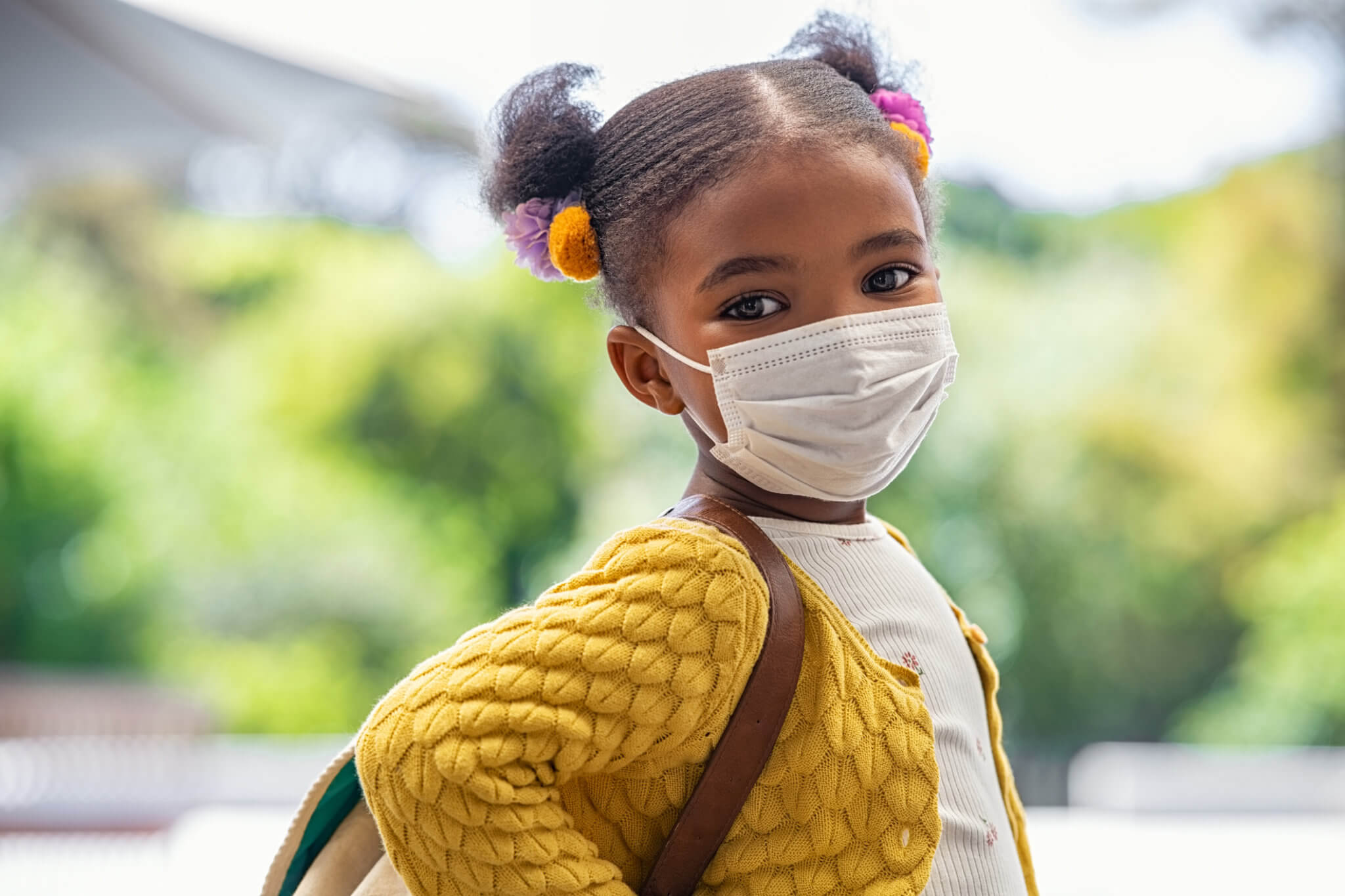Back to School 2022: UnidosUS Partners with Educational and Media Groups to Improve K-12 Learning
Student life has undergone drastic changes since the onset of the global pandemic in early 2020, causing educational delays and barriers for just about all children. But low-income students, children of color, English learners, or have disabilities experienced some of the biggest challenges due to already existing education gaps.
UnidosUS has been working throughout the pandemic to mitigate these challenges by enhancing how it partners with other civil rights and educational organizations. It continues to combat racism, xenophobia, and other forms of intolerance by helping communities know their rights. The following is a summary of its most important resources for improving those outcomes:
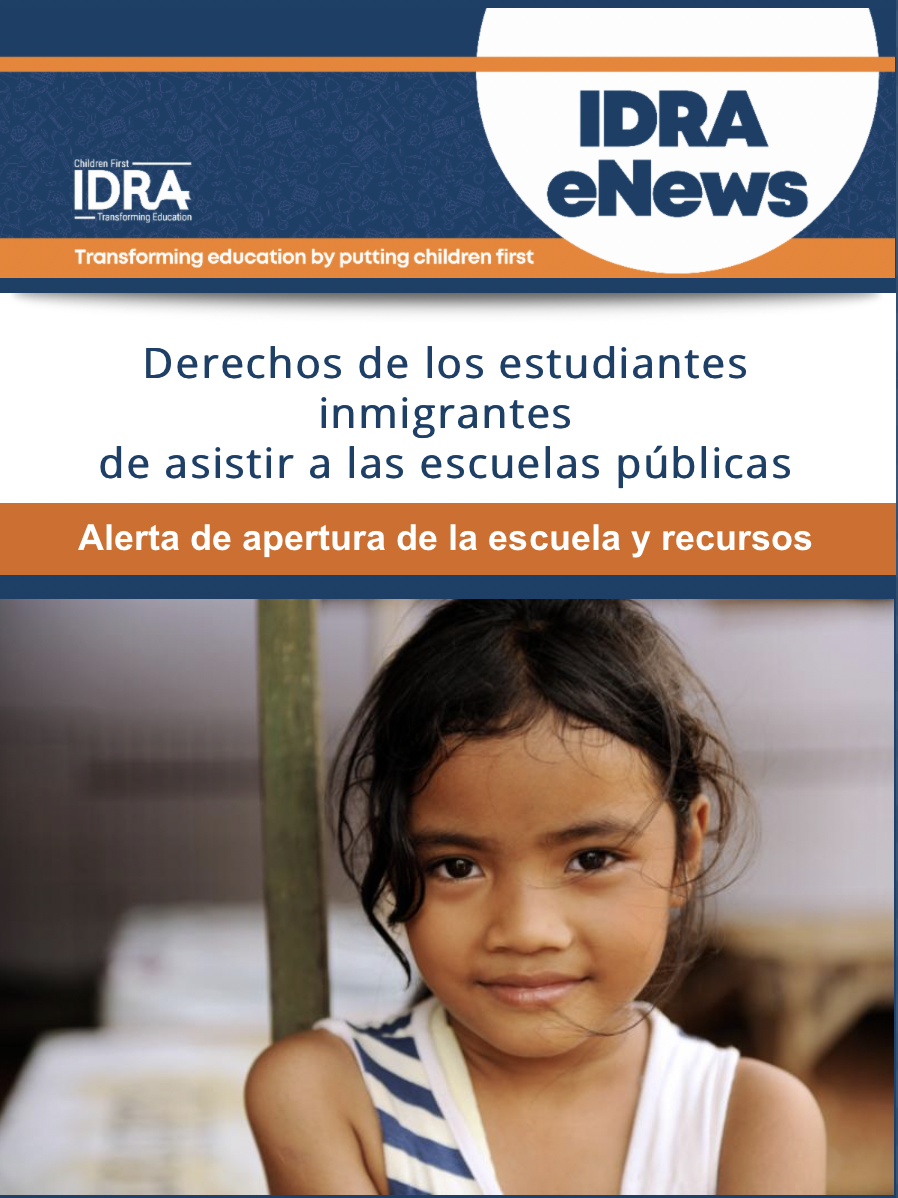
IDRA Derechos de los estudiantes inmigrantes de asistir a las escuelas públicas / Immigrant Students’ Rights to Attend Public Schools
Under U.S. law, every child in this country is entitled to equal access to quality education, no matter what community they come from, or whether or not they are documented. This right has been defended for over a century through multiple Supreme Court cases. And yet, it’s easy for students, especially those coming from immigrant families, to feel intimidated in their efforts to exercise that right. As such, the Intercultural Development Research Association (IDRA) has created a landing page detailing this right and how to defend it. The page comes complete with a printable poster which can be taped or tacked onto the walls of schools, classrooms, and any community centers frequented by immigrant families.
Among other rights, the poster notes that:
- Schools cannot ask for social security numbers and that they are under no legal obligation to enforce U.S. immigration laws.
- Immigration and Customs Enforcement (I.C.E.) are mandated to refrain from enforcement actions at sensitive locations such as schools.
- The Family Education Rights and Privacy Act prohibits schools from providing any government agency with information that would expose that child’s immigration status.
Understood and UnidosUS Take N.O.T.E. Guide
Understood, a non-profit organization that supports people with learning differences, such as ADHD and dyslexia, has partnered with UnidosUS to create the Take N.O.T.E. guide. The acronym stands for notice, observe, talk, and engage. Its goal is to help parents and caregivers gather insights about their children, educational trajectory improvement, and overall well-being. Under each of the four activities, the guide asks parents and caregivers a series of questions that allow them to identify the child’s struggles may be having and decide which next steps or resources to leverage.
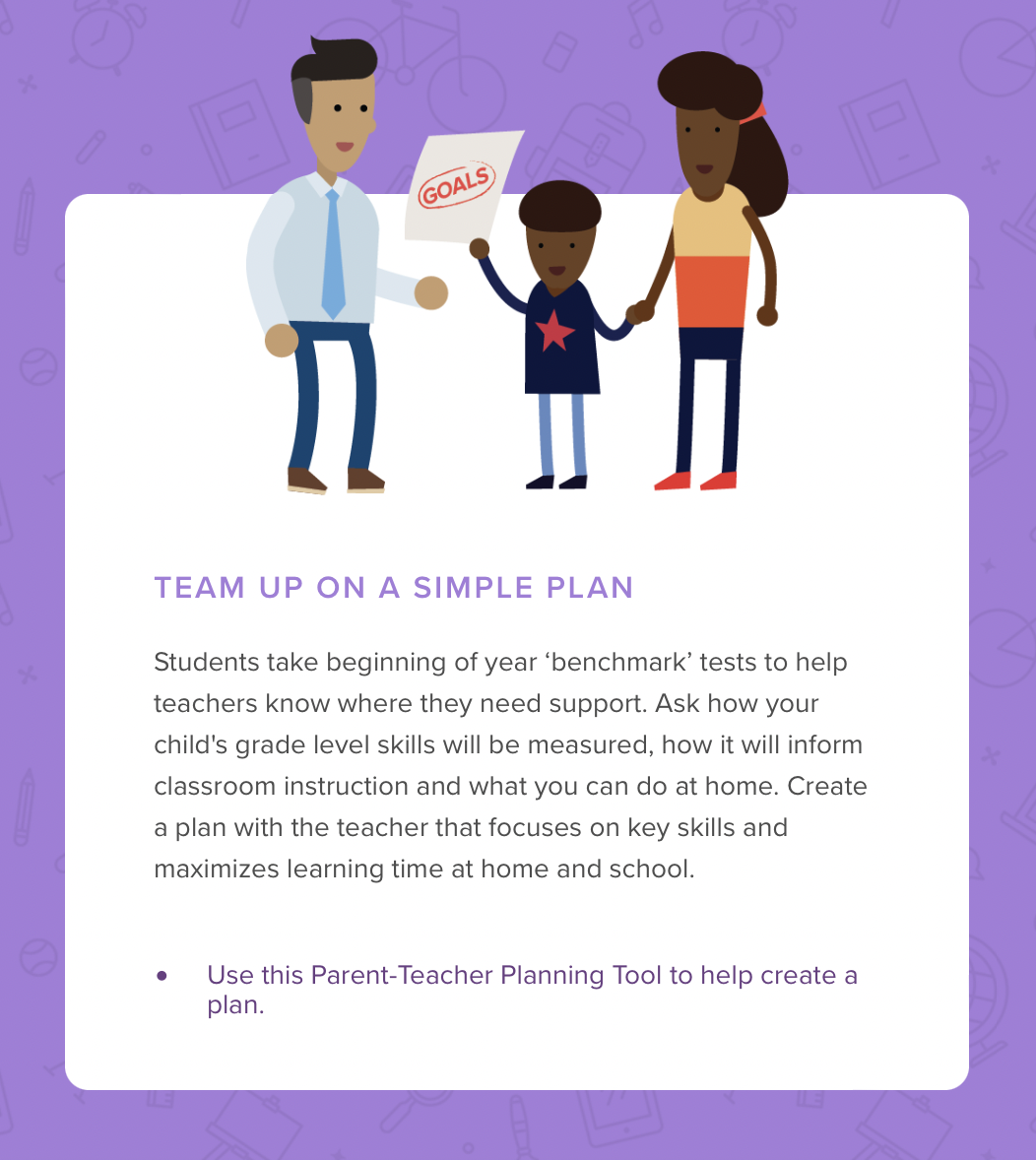
Learning Heroes, UnidosUS, National PTA, Univision Ready to Team Up
The national non-profit organization Learning Heroes works to inform and equip parents with the tools they need to be engaged in and support their children’s education. In partnership with advocacy organizations such as UnidosUS, UNICEF, and the National PTA, as well as media outlets such as Univision, Learning Heroes has developed the Readiness Check. Thís tool makes it easier for parents to engage their children in subject matter exercises to see how they are doing.
It starts with a series of advisory cards aimed at helping them set a positive tone and ask the right questions. Then it delves into math and reading. For example, the exercise offers a step-by-step system for identifying which words a child knows or needs to learn and how complex a sentence they can formulate. It also encourages parents and caregivers to read to children and motivate the child to try writing letters and whole words to see and sound them out. The math portion offers a variety of numerical and math-related word problems that can help to assess how a student fares on everything from multiplication and fractions to algebra and line plots to show measurements. Finally, at the end of each exercise, the guide offers the correct answers along with a solutions page for how to get it right the next time.
This same tool is available in Spanish under the title Learning Heroes, UnidosUS, National PTA, Univision Juntos Somos Un Gran Equipo.
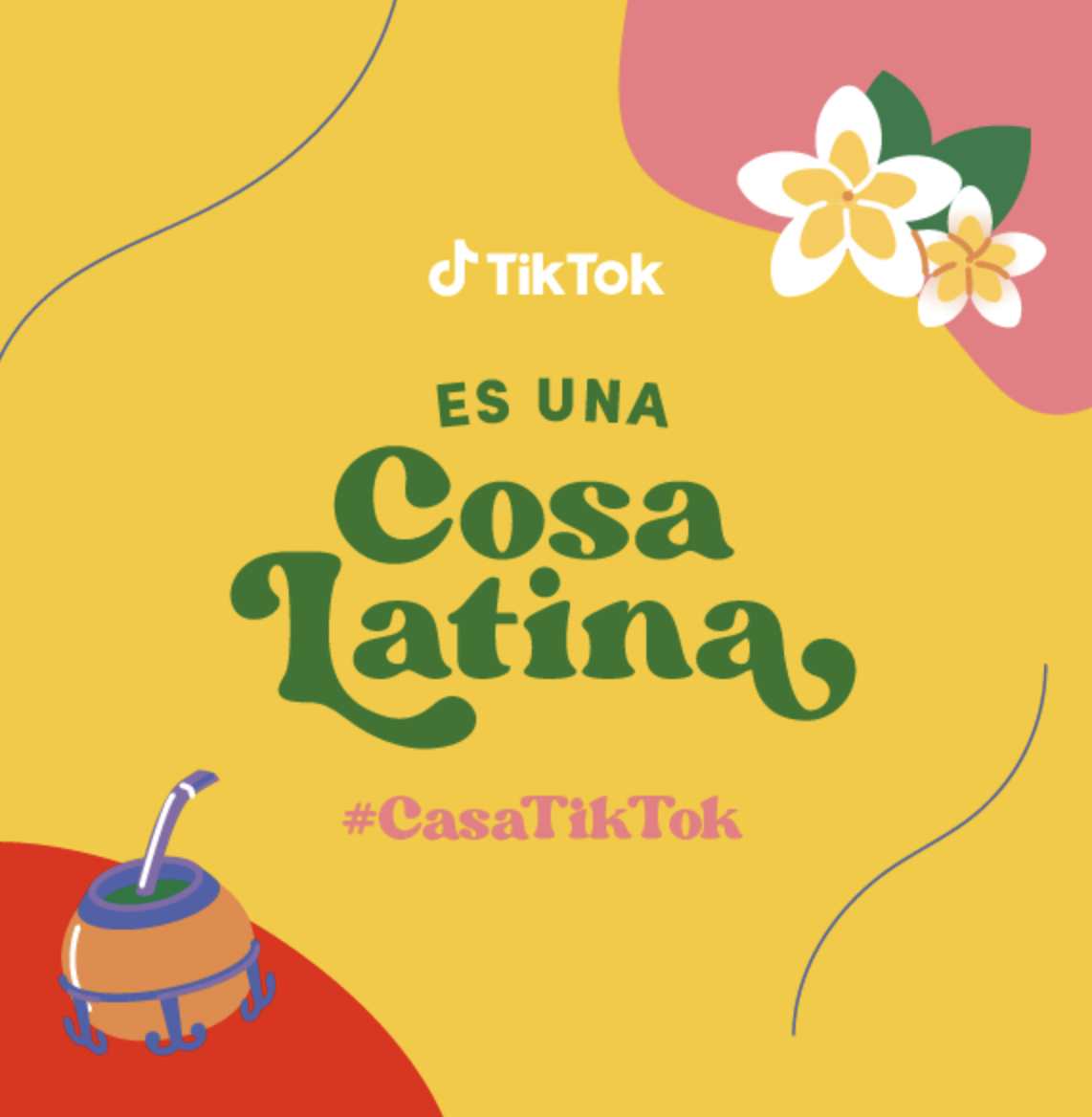
National PTA Expands PTA Connected Initiative with TikTok
In the digital age, tracking what kinds of media and messaging children are watching and absorbing is technically easier. Still, there’s also a lot more content flying at them on various platforms. By far, the most popular social media platform among tweens and teens is TikTok, a free social media app where anyone over the age of 13 can watch, create, and share short videos from their phone, often developing content with pre-recorded music.
TikTok can be used to make fun or serious observations about the state of the world or one’s place in a local community. Even some teachers are using it to teach math and reading in a more engaging and entertaining way. But at the same time, TikTok can also expose youth to messages their parents won’t be comfortable with since it can become sexually explicit, socially aggressive, or provide opportunities for publicizing too much private information.
That’s why TikTok now partners with the National Parent Teachers Association to walk families through the app’s safety and privacy features and help parents to have “open, ongoing conversations with their teens” about how to engage social media in a productive and responsible manner. Educators, parents, and students can learn more about how to do this through the National PTA’s PTA Connected program, which helps families and communities create spaces for discussing healthy digital behaviors; build and grow a more positive digital community; and establish tools and resources for best digital practices.
That same platform has also been embraced by educators trying to connect with their students.
“Tiktok allowed me to not only connect with my students but it also broke the barrier that some parents have when it comes to getting involved with their students’ education. Tiktok made room for the whole family to get involved and invested in the skills we were teaching,” said Aimy Avila, a third and fourth grade math and science teacher from Clay Hill Public Charter School in Baltimore, Maryland.
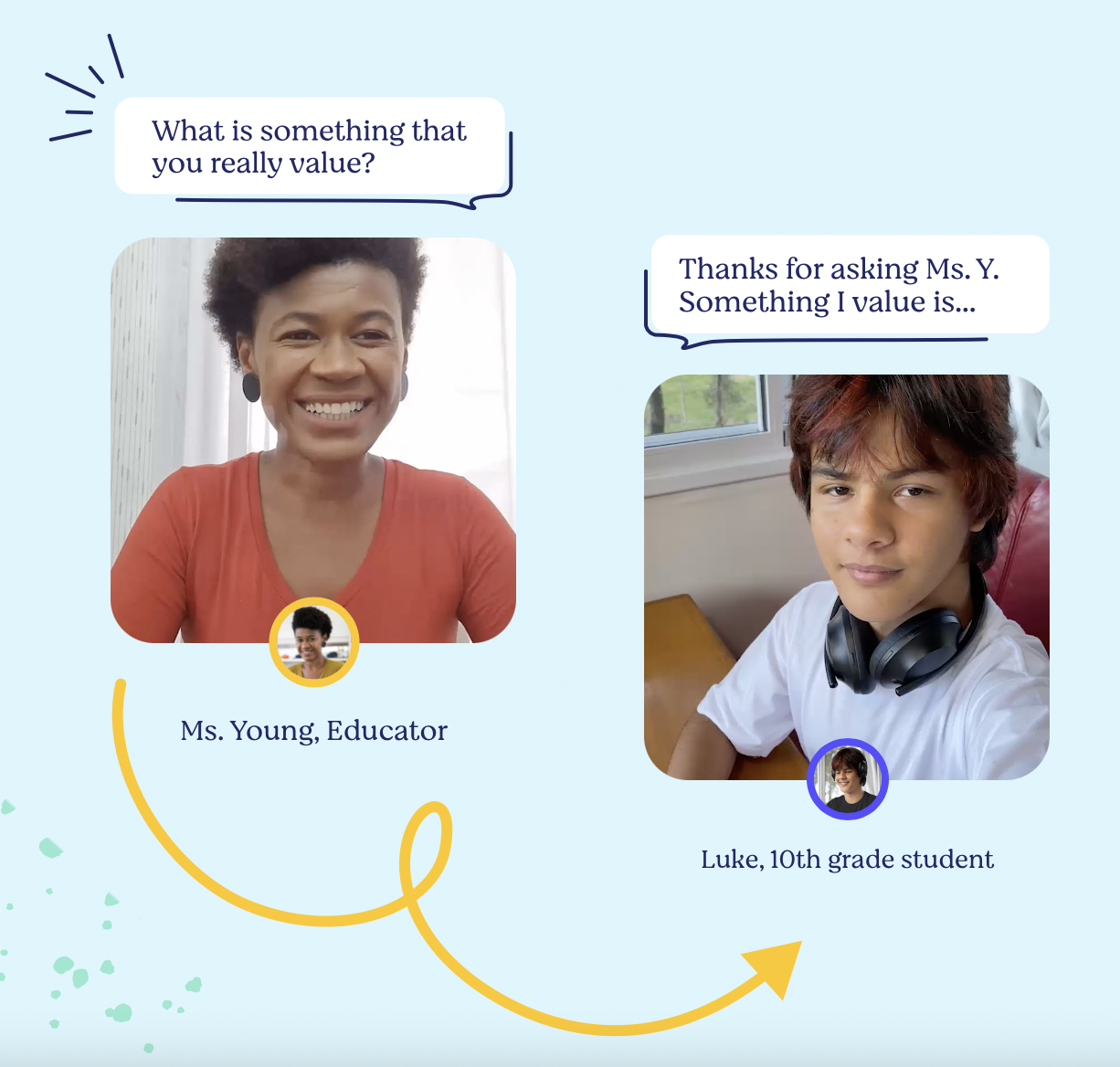
Along: The Teacher-Student Connection Builder
And whether online or in person, reflective, meaningful conversation is key to social and emotional learning, which leads to greater focus, cognitive development, and collaboration for all students. One tool to facilitate that is Along. This is a free, online platform where teachers can exchange video, audio, and text messages with their students, choosing from an expansive library of research-based conversation starters.
“Along is a helpful tool to build teacher-student connections via shared reflection questions that support students’ growth and well-being,” says UnidosUS Education Research Program Manager Dr. Ingrid Colón.

SOUND IT OUT Back to School Toolkit 2022
Meanwhile, the Ad Council has created a back-to-school social media toolkit that’s easy to grab and go to improve communication between students and their parents. The grab-and-go resource is perfect for schools, community centers, and parent engagement leaders with a social media presence since its graphics were designed for exactly that purpose.
Those resources include hashtags legitimizing the often stigmatized concept of mental health, a list of do’s and don’ts for appropriate social media messaging, links to relevant content from the Ad Council, and title cards offering ideas for helping students make the new school year transition.
Some of them help parents to write out their concerns and communication before they sound it out:
- What’s the story I hope my child will tell about their experience in school this year?
- What emotions did I feel when I was my child’s age in school? How do I imagine my child will handle similar emotions?
- What are my worries about my child’s experience as a student of color? How can I best support them?
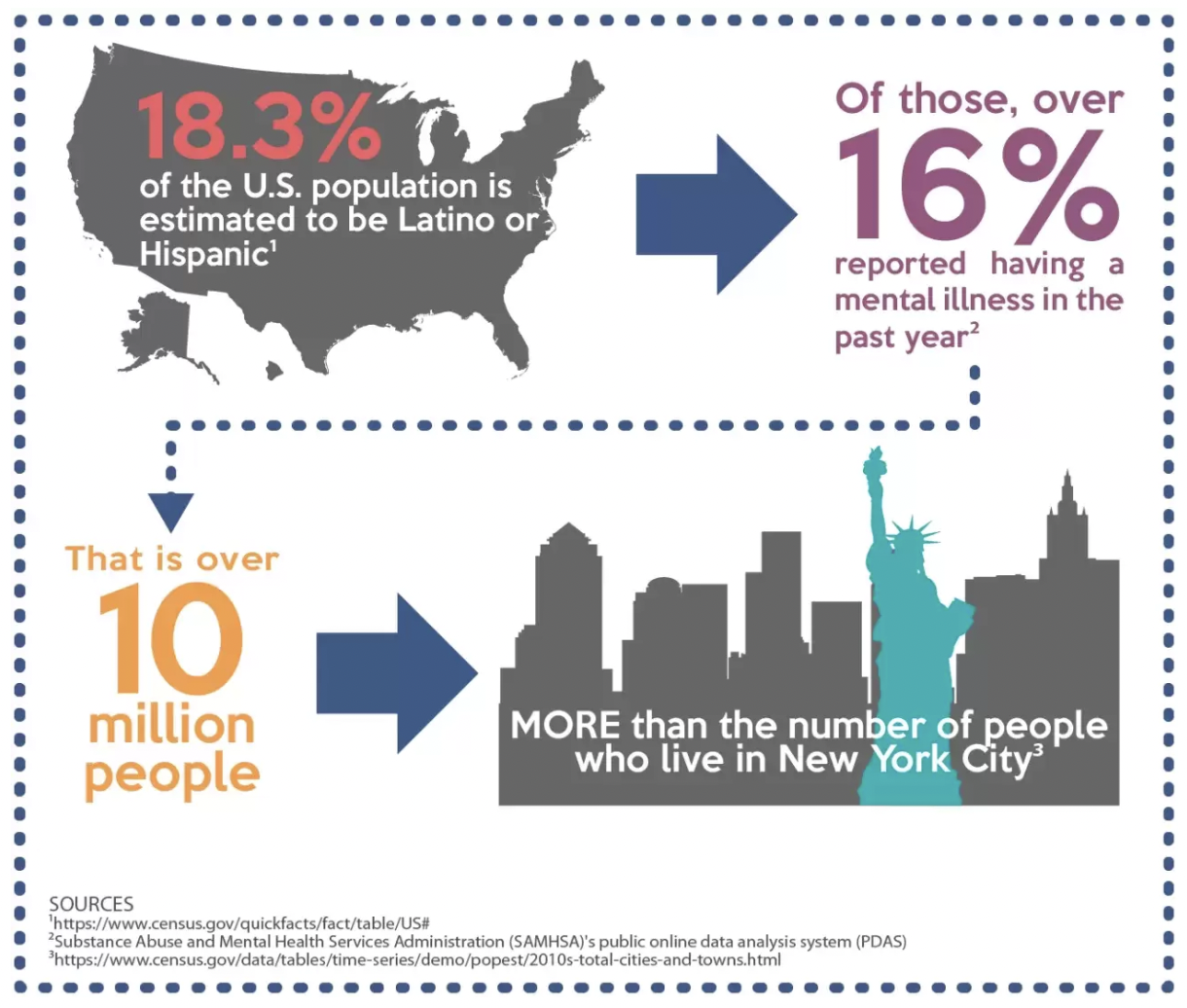
Mental Health Resources for Hispanic and Latino/a Students by Best Colleges – According to Mental Health America
Access to formal mental health resources is also key, and for many Latinos, it helps to know just how common their concerns are and that there’s nothing wrong in seeking extra support. Parenting, caregiving, heading off to college, and in so many other capacities, an estimated 10 million Latinos report having a mental health condition. The numbers are on the rise for those aged 18 to 49,andthe disparities Latinos face in accessing affordable health coverage are one of the biggest factors for this. Best Colleges has put together a comprehensive investigation into why these disparities exist and how to mitigate them.
As this resource notes, “there is a significant need for specialized Latino/a mental health services, including culturally and linguistically appropriate programs. In an effort to increase visibility and access to specialized support channels, this guide highlights the mental health services and mental resources available to students.”
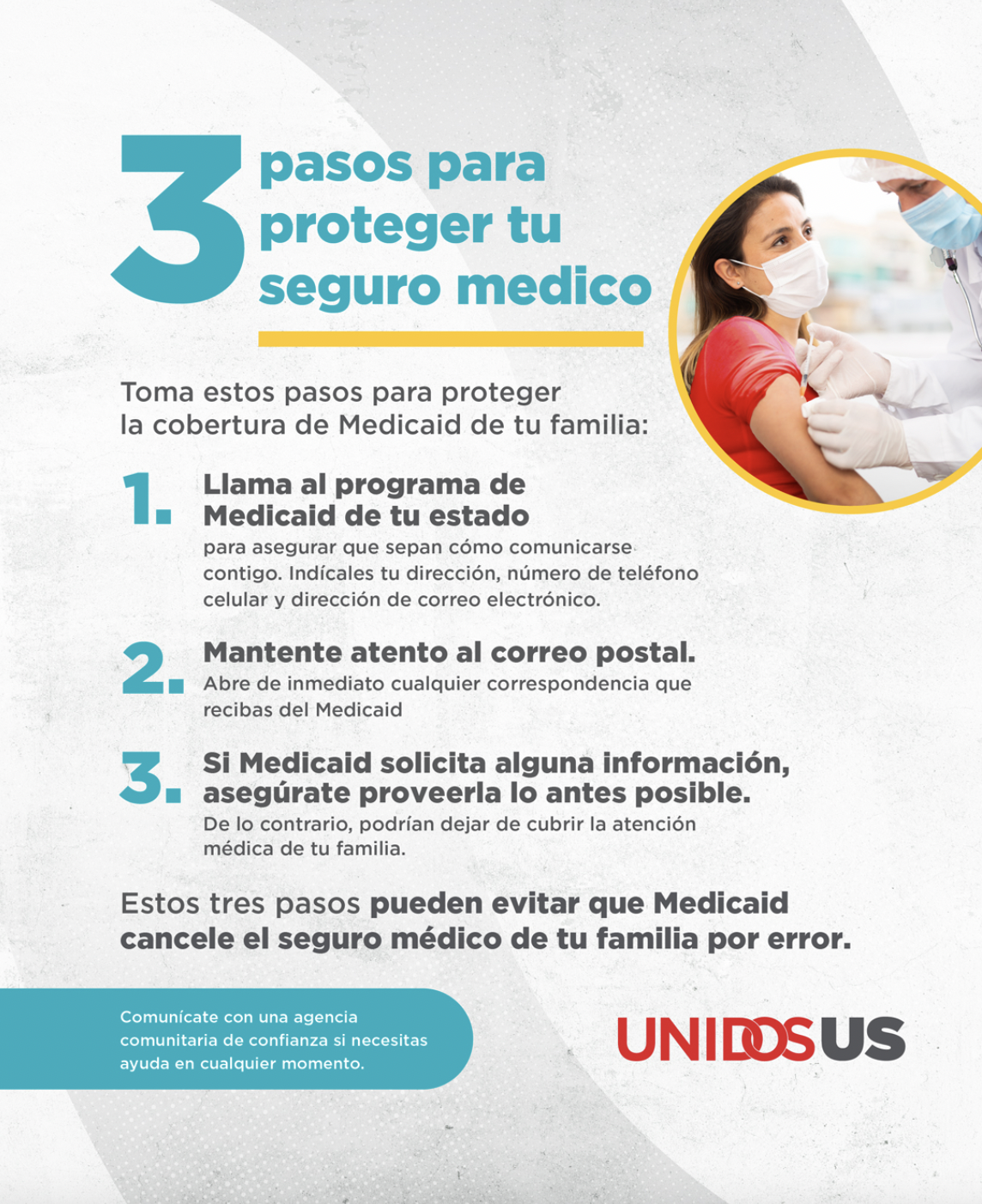
Medicaid and the Children’s Health Insurance Program (CHIP)
Health care matters to children. Children’s health problems are more likely to be detected and treated when they have health insurance. As a result, they learn more in school and are more likely to graduate high school and college. As adults, they are more likely to be self-sufficient and less likely to experience serious illnesses.
Right now, more than half of all Latino children rely on Medicaid and the Children’s Health Insurance Program (CHIP) for their health care. During the pandemic, Medicaid has not been allowed to terminate families’ health care, but that’s expected to change sometime in the next 12 months. Every state will be assessing each Medicaid and CHIP family to see if they still qualify for help. UnidosUS has developed a one-pager, available in English and Spanish, explaining three key steps families should take to protect their coverage. (We’ll have the one-pager and a link to the one-pager inserted here).
“It is vital for families to act now to protect their children and prevent them from losing health care later this school year,” says UnidosUS Health Policy Project Director Stan Dorn.
Ready, Set, Go
UnidosUS encourages its readers to not only engage in these resources but to share them widely with their communities so that we can help children be socially, emotionally, and academically ready for their K-12 experience. We also hope you’ll read the ProgressReport.com blog, which serves as a forum to understand educational policy and programming through a Latino lens.
“We are indebted to every educator who came up with creative solutions during these unprecedented times,” said Valencia.
–Author Julienne Gage is a former UnidosUS Senior Web Content Manager who now serves the organization as a consultant.


